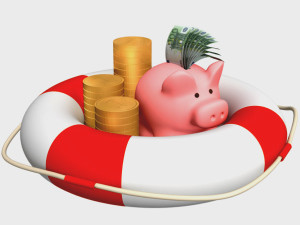 Today’s top story: How to rack up points and miles with everyday spending. Also in the news: What to buy and skip in October, how to catch up on your savings, and why consumer instant gratification can prove risky.
Today’s top story: How to rack up points and miles with everyday spending. Also in the news: What to buy and skip in October, how to catch up on your savings, and why consumer instant gratification can prove risky.
How to Rack Up Points and Miles With Everyday Spending
Piling up miles wherever you go.
October is the Month to Buy Jeans, Grills and More
Behind on Your Savings? You’re Not Alone
There’s time to catch up.
Consumer instant gratification can prove risky
Staying within your means.
 Today’s top story: Save more money for your next vacation with this simple trick. Also in the news: How LexisNexis identity mix-ups could be scrambling your finances, how to review your LexisNexis report and fix errors, and all the ways your credit card use reveals personal info.
Today’s top story: Save more money for your next vacation with this simple trick. Also in the news: How LexisNexis identity mix-ups could be scrambling your finances, how to review your LexisNexis report and fix errors, and all the ways your credit card use reveals personal info. Today’s top story: Green Dot launches 3% cash back and savings account. Also in the news: Apps that could prompt impromptu spending, how to avoid lifestyle creep, and how to financially plan for having kids.
Today’s top story: Green Dot launches 3% cash back and savings account. Also in the news: Apps that could prompt impromptu spending, how to avoid lifestyle creep, and how to financially plan for having kids.  Today’s top story: Don’t let lifestyle creep sneak up on you. Also in the news: 7 steps to buying a house, do you need a tax ID number, and how to make sure you don’t lose your credit card rewards when closing the card.
Today’s top story: Don’t let lifestyle creep sneak up on you. Also in the news: 7 steps to buying a house, do you need a tax ID number, and how to make sure you don’t lose your credit card rewards when closing the card. Today’s top story: Regretting your Equifax settlement choice? You can change it. Also in the news: What to buy (and skip) in August, considering CDs as savings interest rates fall, and how to wean your adult child off your credit cards.
Today’s top story: Regretting your Equifax settlement choice? You can change it. Also in the news: What to buy (and skip) in August, considering CDs as savings interest rates fall, and how to wean your adult child off your credit cards.